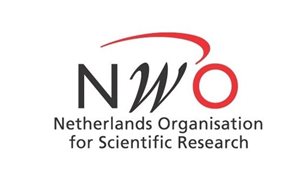21 January 2020
The 5-year long project called ‘PRIME’ (Prevention and Remediation of Insulin Multimorbidity in Europe) aims to unravel how brain disorders throughout life can be traced to alterations in insulin signalling and how this relates to the somatic diseases type 2 diabetes and obesity. In total, 17 different university and private sector groups from 9 different European countries will participate in PRIME, which will receive €6 million funding from the EU’s Horizon 2020 programme.
Insulin-related illnesses (insulinopathies) present a major health, societal, and economic burden. The known somatic insulinopathies are often long-term, chronic illnesses. So far, there is hardly any knowledge about brain-based insulinopathies. Medical efforts are mainly or only devoted to the management of somatic insulinopathies, with little attention to additional effects of altered insulin signalling on the brain.

PRIME will break new ground in addressing this problem, starting from the hypothesis that altered insulin signalling not only has effects on somatic illnesses but also on neurodevelopmental and neurodegenerative disorders, especially those linked to cognitive inflexibility. By probing the causal mechanisms linking somatic and brain-based insulin-related illnesses, PRIME’s multidisciplinary team will work to extend our understanding of insulin-related effects across the lifespan. The researchers also hope to develop tools for better diagnosis, improved clinical treatment, and potentially prevention of comorbid insulinopathies. PRIME will work with large population data sets to identify and validate new insulinopathies and subsequently use highly interdisciplinary approaches to study insulin communication between body and brain from molecule to cell, brain, cognition, and behaviour. In addition to increased mechanistic understanding, the PRIME project aims to outline new directions for research and clinical care.

The 5-year long project called ‘PRIME’ (Prevention and Remediation of Insulin Multimorbidity in Europe) aims to unravel how brain disorders throughout life can be traced to alterations in insulin signalling and how this relates to the somatic diseases type 2 diabetes and obesity. In total, 17 different university and private sector groups from 9 different European countries will participate in PRIME, which will receive €6 million funding from the EU’s Horizon 2020 programme.
Insulin-related illnesses (insulinopathies) present a major health, societal, and economic burden. The known somatic insulinopathies are often long-term, chronic illnesses. So far, there is hardly any knowledge about brain-based insulinopathies. Medical efforts are mainly or only devoted to the management of somatic insulinopathies, with little attention to additional effects of altered insulin signalling on the brain.

PRIME will break new ground in addressing this problem, starting from the hypothesis that altered insulin signalling not only has effects on somatic illnesses but also on neurodevelopmental and neurodegenerative disorders, especially those linked to cognitive inflexibility. By probing the causal mechanisms linking somatic and brain-based insulin-related illnesses, PRIME’s multidisciplinary team will work to extend our understanding of insulin-related effects across the lifespan. The researchers also hope to develop tools for better diagnosis, improved clinical treatment, and potentially prevention of comorbid insulinopathies. PRIME will work with large population data sets to identify and validate new insulinopathies and subsequently use highly interdisciplinary approaches to study insulin communication between body and brain from molecule to cell, brain, cognition, and behaviour. In addition to increased mechanistic understanding, the PRIME project aims to outline new directions for research and clinical care.
Related news items

Dutch Research Agenda (NWA) WECOM grant from NWO for Martine Hoogman en Jeanette Mostert
5 July 2022 Martine Hoogman and Jeanette Mostert have obtained an NWA science communication grant (50k) for their ADHDplaza project. read more
Scientists find that the impact of social media on wellbeing varies across adolescence
29 March 2022 Girls and boys might be more vulnerable to the negative effects of social media use at different times during their adolescence, say an international team of scientists in a study published today in Nature Communications. read more
1.5 million for research into young people with mild intellectual disabilities
13 November 2019 Researchers from the Radboud University and Radboudumc will partner with social organisations to map how often young people with mild intellectual disabilities have psychological problems and how they can be treated. The project was recently awarded a subsidy of 1.5 million euro by ZonMw. read more
Rubicon grant for Marianne Oldehinkel
17 January 2018 Rubicon grant for study into disrupted communication in the autistic brain. read more

